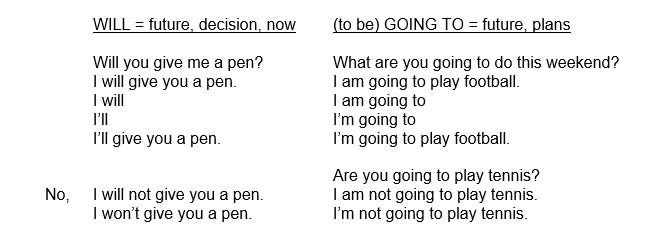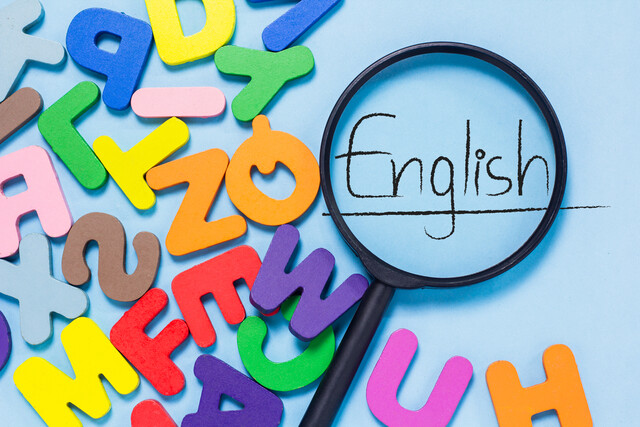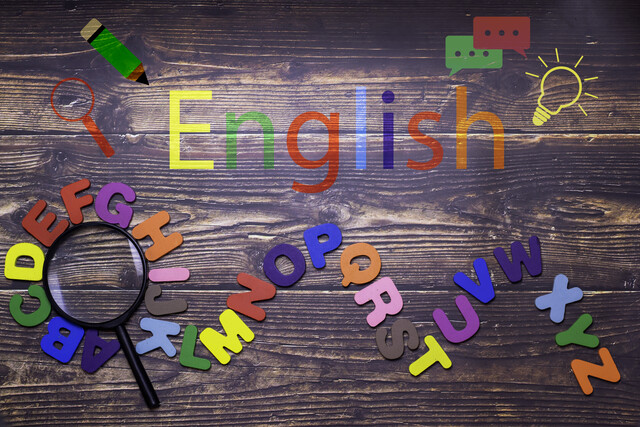English classes on grammar dealing with future tenses can get pretty complicated, but they don't have to be.
Usually the subject is broken down into separate classroom lessons, focusing one at a time on will, going to, and other ways of talking about the future (present simple, present continuous, future continuous etc.) not to mention advanced classes about the future perfect tenses. Sometimes two or more forms are presented together.
Will and going to
"Will" and "going to" can usually be used interchangeably. The difference between them is minor.
A simple way to present the difference between "will" and "going to" is to stress that "will" is used for talking about the future now, as in a decision to do something now ("Are you cold? I will close the window") and "going to" is for talking about plans.
Also, "will" is used more than "going to" in written correspondence, especially in business dealings.
In English classes around the world many if not most students learn will first and foremost; that means many non-native speakers end up using only will.
That's not all bad. Whether in casual communication or international business, it's common for non-native speakers to stick exclusively to will, both in conversation and writing.
In fact, there's usually nothing grammatically incorrect about using will all the time. "What will you do this weekend?" and "Today I will start the new project" are just fine. But native speakers would often say going to for both, because they are about plans and intentions.
So the challenge for a teacher is how to teach both these forms, how (and whether) to teach their differences, and how much to stress the differences in use by your students.
More about the difference
Again, most often, the difference between 'will' and 'going to' is minor; they can be used interchangeably. This really must be stressed in any classroom lesson.
However, in spoken conversation "will" conveys spontaneity and prediction; "going to" conveys plans, intention and certainty in the future. Let's explore "will" and "going to" separately.
Uses of "will"
Although often interchangeable with "going to," "will" is used specifically for a decision made spontaneously at the moment of speaking, as a direct reaction to the current situation. Some examples:
(On the phone, in direct reaction to the caller.)
Caller: Is the manager available?
Assistant: Just a moment, I'll check and I'll let you know.
(In a meeting, in direct reaction to the situation, not planned.)
Boss: Today, everyone is going to present their project. Who wants to go first, second, etc?
Tom: I'll go first.
Nancy: I'll go second.
John: I'll go last, no problem.
"Will" is also used in predictions not based on direct evidence. More about that below.
Uses of "going to"
"Going to" is used to talk about intentions:
I'm going to send you an email in the morning.
I'm going to finish this project today, even if I have to work all night.
It is also used for plans:
Mary: What are you going to do this weekend?
John: I'm going to see a movie with some friends.
Amy: Really? What are you going to see?
"Going to" is also used to make predictions based on direct evidence (not predictions that are theorizing about the future or made by, for example, by a fortune teller.) Examples of predictions based on evidence:
Look at the dark clouds. It's going to rain!
I'm stuck in a traffic jam. I think I'm going to be late.
Based on current growth rates, China is going to be the world's biggest economy by 2050.
The Issue of Predictions
Many textbooks will mention that "will" is used for predictions of the future that are not based on direct evidence, and it's fine to teach that aspect.
But in fact "will" and "going to" can also pretty interchangeable in these kinds of predictions. We will check out some examples of predictions and see if there's a big difference in meaning:
In ten years I will be rich and famous!
In ten years I am going to be rich and famous!
The first sentence does seem more like a prediction, and the second does sound like it is somehow a fact about the future based on evidence, even though that's hardly possible. And yet the second would be commonly used in conversation. Another:
This month will be very important in my life, according to my astrologer.
This month is going to be very important in my life, according to my astrologer.
With these two above, there doesn't seem to be much difference. Perhaps the second sentence sounds like it is believed to be a fact by the person speaking?
He probably won't be happy in his new job.
He probably isn't going to be happy in his new job.
Without context, these two are identical in meaning.
This shows that the difference should not be belabored in a classroom lesson.
Making it simple: a summary for "will" and "going to"
So far we have explored some subtle differences while at the same time noting that the difference between 'will' and 'going to' is often not much or nothing at all.
We have analyzed how "will" is used in situations of spontaneity and in fortune-telling kinds of prediction not based on direct evidence; "going to" is often used when talking about plans, intention, things that are certain in the future, and predictions based on evidence.
A simple way to present the difference is to summarize that "will" is used for talking about the future "now" ("Are you cold? I will close the window") and "going to" is for talking about plans in the future.
There is no hard-and-fast rule about when to teach the difference between will and going to.
For beginner classes, the difference is often not mentioned at all. In a classroom lesson where the differences are mentioned, it's a good general rule to just mention the difference and have some exercises on them while avoiding confusing the students by overemphasizing the difference.
A lesson plan for teaching "will" and "going to"
This is for a class that has already learned about "will" and "going to" and how they can be interchangeable.
Classroom Objectives: For students to learn the difference between "will" and "going to."
For students to use "will" and "going to" in conversation.
Vocabulary: a window, a heater, a key
Present the vocabulary with the techniques from previous lessons.
Now write on the board on the left side, leaving room on the right:
I have a problem. I don't have a pen.
Choose a student, indicate the board, and have them read it out loud.
You respond, "That's okay, I'll give you a pen." Go and give the student a pen.
Do this quickly with every student. Go back to the board and write:
That's okay, I will give you a pen.
I will
I'll
I'll give you a pen.
Focus on the first sentence. Have the class repeat it together, without the "that's okay" part, only the "I will give you a pen." Use the techniques we have learned to check some or all individual students, checking and correcting the pronunciation.
Go back to the and do the same for the next line, "I will."
Use the techniques we covered in Lesson 3 for contractions to present "I'll" and have them repeat it. Then go to "I'll give you a pen."
Then go back and forth between "I will give you a pen" and I'll give you a pen" to reinforce that they are the same sentence except for the contraction. Then do it a couple more times with "That's okay" included to reinforce that conversational aspect.
Go back to the board, erase "That's okay" and write the new sentences (indicated in bold) so you end up with:
I will give you a pen.
I will
I'll
I'll give you a pen.
No, I will not give you a pen.
I won't give you a pen.
Show the students the contraction of "won't" and then have the students repeat the question, the positive answers, and the negative answers. Use the "halving" technique we covered in Lesson 2 to have half the class ask the question and the other half answer. Then use open pairs to do the same with some individual students.
If possible, at this point you might open a window and say "I'm cold!" while looking back and forth from the window to the class. "I'm cold." See if anyone says "I will close the window." If not, write the sentence on the board and repeat "I'm cold" and have individual students say the sentence "I will close the window." Have each one get up and close the window, and then you say "Thank you."
If opening a window is not appropriate for possible, you could also use an open door for this part. Open the door, go back to the class, say "The door is open!" and continue in the way described above.
Practice 1
For this example of a possible exercise, point out the handout and the "Tom says" and "Mary says" parts.
WILL
Tom says: Mary says:
1. I'm very, very sick. A. I'll show you how to do it.
2. I don't have any money. B. I'll turn on the heater.
3. I don't know how to do it. C. I'll answer it.
4. The phone is ringing. D. I'll take you to the doctor.
5. It's cold. E. I'll give you $20.
6. It's hot. F. I'll make you a burrito.
7. I can't find my key. G. I'll call her.
8. I'm hungry. H. I'll open the window.
9. Where is Maria? She's late. I. I'll help you find it.
Say "Number 1, Tom says 'I'm very, very sick.' Mary says 'D' 'I'll take you to the doctor." Give them four minutes.
Monitor the class while they work. After, quickly check the answers by asking the whole class, "Number 1?" and getting the answers.

Have the students as a whole class, in halves and then individually, repeat the first new questions and answer, and then repeat "I am going to," "I'm going to" and finally again "I'm going to play football.
Do the same for "Are you going to play tennis?" and the negative answers.
Go back to "I'm going to play football" and have the class repeat a few times. Then say "I'm going to play tennis, I'm going to see a movie, I'm going to visit my family, I'm going to go to a concert."
Choose one of the better students and ask the student "What are you going to do this weekend?" If you get a good answer, continue to practice 2. If not, go back and show the whole class the right kinds of answers, drill them a bit, and then ask the student again. Repeat until you get a good answer.
Practice 2
Present practice 2 the same way as you did practice 1.
GOING TO
Connect the question on the left with the correct answer on the right.
1. Are you going to play football tomorrow? A. On Saturday I'm going to see a concert.
2. Are you going to see a movie tonight? B. Yes, I'm going to study English.
3. Are you going to study this weekend? C. Yes, I'm going to see a horror film.
4. Are you going to go out this weekend? D. No, tomorrow I'm going to play tennis.
1. Where are you going to meet your friend? A. I'm going to meet her at the park.
2. What are you going to do on Friday night? B. Nothing. I'm going to stay home.
3. When are you going to finish the project? C. I'm going to finish next month.
4. Who are you going to eat dinner with? D. I'm going to eat with my girlfriend.
Again, monitor and afterwards check the answers with the whole class.
Production
For the first part, put them into pairs and use the handout from practice 1. Have one student in each pair read the first part and the other student read the answer, and then switch roles.
WILL
Tom says: Mary says:
10. I'm very, very sick. A. I'll show you how to do it.
11. I don't have any money. B. I'll turn on the heater.
12. I don't know how to do it. C. I'll answer it.
13. The phone is ringing. D. I'll take you to the doctor.
14. It's cold. E. I'll give you $20.
15. It's hot. F. I'll make you a hamburger.
16. I can't find my key. G. I'll call her.
17. I'm hungry. H. I'll open the window.
18. Where is Maria? She's late. I. I'll help you find it.
When they are done, have the student fold the handout so only the first part is visible. In their pairs, have one student read the first part while the second gives an answer with "I'll."
Indicate the practice 2 handout and do the same, saying "Are you going to play football tomorrow?" and encouraging the students to answer as a class. Then have them read the questions and answers from the exercise to each other in their pairs.
When they are finished with the practice, choose a student and ask the student, "What are you going to do this weekend?"
Then hand out the following exercise to the pairs, and say "ask and answer."
1. What are you going to do tonight?
2. What are you going to do on Saturday?
3. What are you going to do on Sunday?
4. What are you going to do next week?
5. What are you going to do after this class?
6. Are you going to do any sports this weekend?
7. Are you going to watch a movie tonight?
8. Are you going to talk to your family today?
9. Are you going to do your homework tonight?
10. Are you going to meet a friend tonight?
Monitor the class. If the pairs finish before the end of class, assign all new pairs to the whole class and have them start again. This is a good technique in general for keeping a Production exercise going when the pairs finish the exercise together.




















